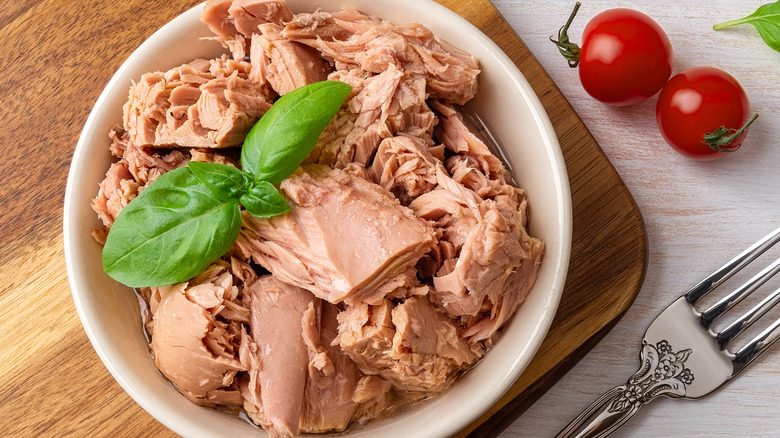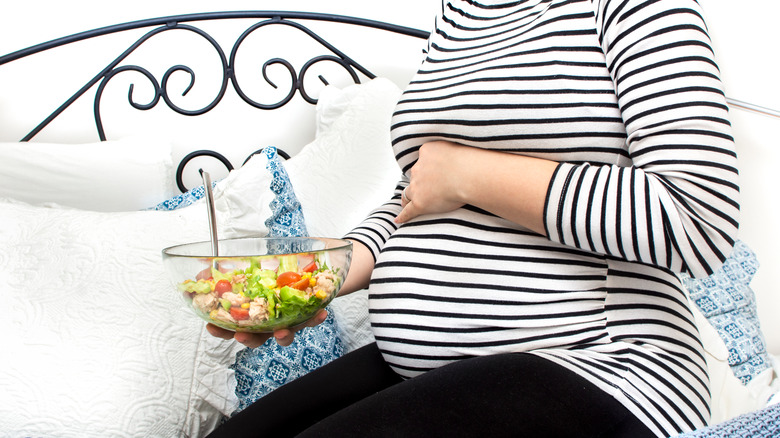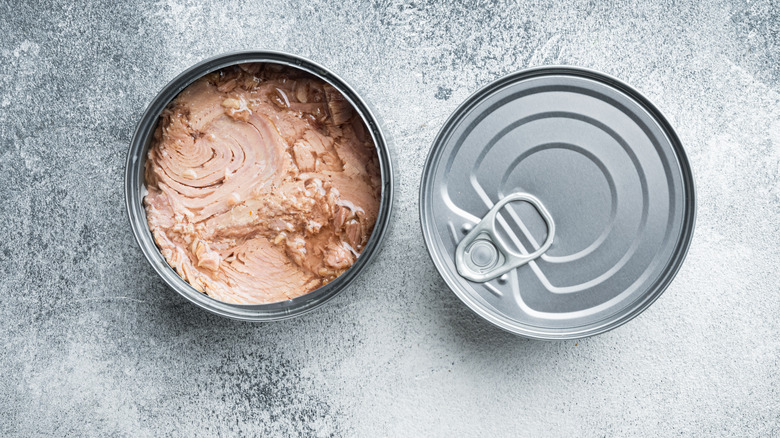Can You Eat Tuna While Pregnant?
Once the morning sickness of the first trimester is over and you head into the second trimester, you might find that your appetite is back in full force. It's good news especially if you've suffered from severe nausea and food aversions throughout your pregnancy. At the same time, you might also find yourself with some serious food cravings.
The most common pregnancy cravings include chocolate, pickles, citrus, and milk (via Verywell Health). That's because your taste buds are working in overdrive and are essentially calling you toward strong flavors such as sweet, salty, and sour. There is a belief that this stems from your body attempting to replenish itself after a few months of nausea and vomiting that often happens in early pregnancy.
Whether you have cravings or not, you'll want to eat nutritiously dense and healthy foods (via Mayo Clinic). It's vital to get enough folic acid, protein, calcium, Vitamins B and D and iron. Whenever talking about food, questions about food safety tend to surround pregnancy, and one popular question arises about eating tuna.
Eating fish is recommended during pregnancy
The U.S. Food & Drug Administration has guidelines about consuming fish, including tuna, during pregnancy. In general, they recommend that pregnant women eat a 4-ounce serving of fish (about the size of your palm) 2-3 times a week. They also advise eating different types of fish rather than the same ones in order to gain maximum benefits. Fish contains a great amount of protein, omega 3s, vitamins, and minerals that optimize your health and your growing baby's development.
According to Healthline, tuna contains a high amount of protein which helps boost your baby's development. The popular fish also has iron which helps the baby's nervous system and brain health, vitamin D for bone health, and B12, another nutrient important for the baby's nervous system. In addition, each of these nutrients helps safeguard against miscarriage and preterm birth.
One of the most important nutrients found in tuna is the long-chain omega-3 fats known as eicosapentaenoic acid (EPA) and docosahexaenoic acid (DHA). These types of omega 3s significantly affect the development of the baby's brain and nervous system.
Some tuna is better than others
However, not all tuna is created equal, especially when it comes to pregnancy. There are some precautions to take when eating tuna due to its high mercury content. White albacore tuna contains three times more mercury than light tuna. Registered dietician Jennifer Hanes tells Verywell Health, "Light canned tuna will likely have the lowest mercury level of the various canned tunas available."
If choosing light canned tuna, which contains skipjack tuna, you can safely enjoy up to 12 ounces a week. Still, if you really prefer white albacore tuna, you can have some but stick to four ounces a week. Avoid eating big-eyed tuna since it contains the highest amount of mercury of all types of tuna.
When opting for light canned tuna, you won't skimp on the nutrients. One small can of light tuna actually provides 107% of the daily recommended value of vitamin B12 and 32% of protein needed for one day (via USDA).


